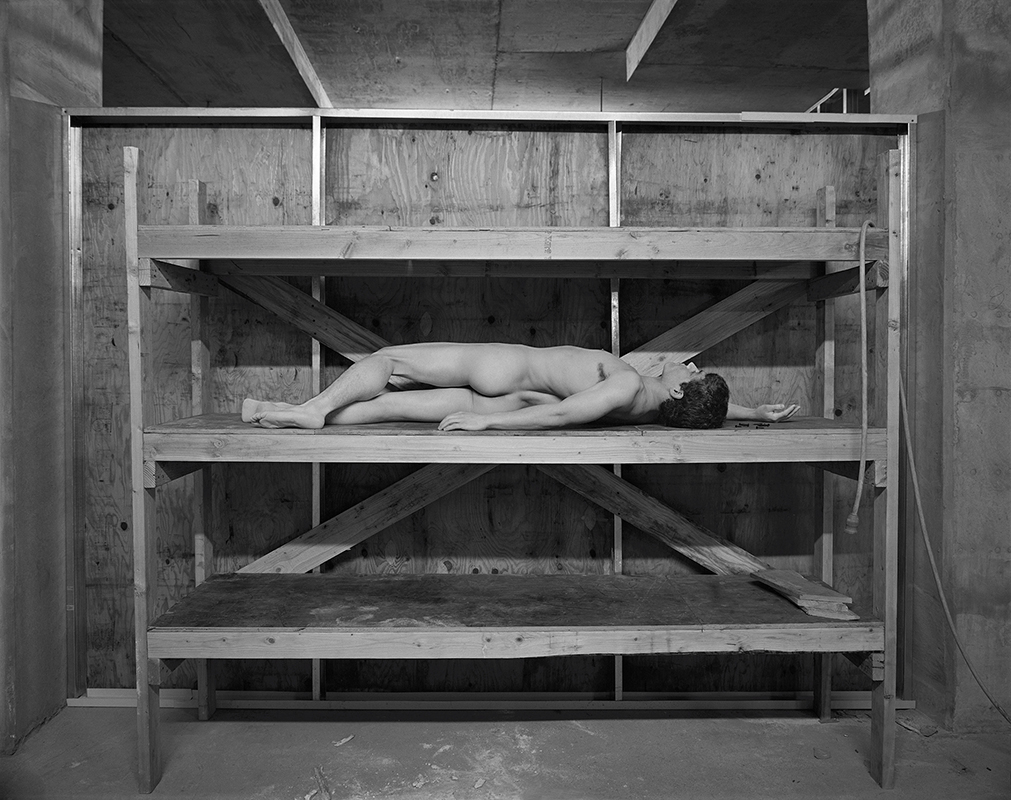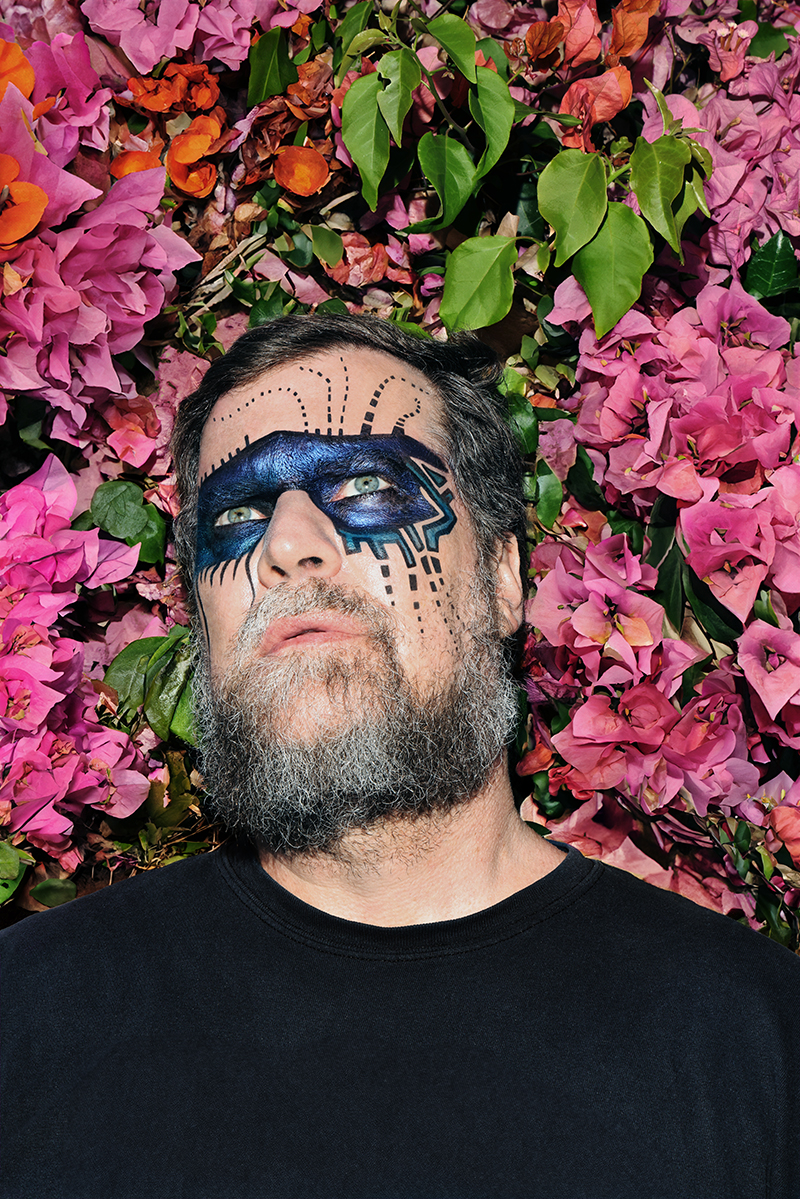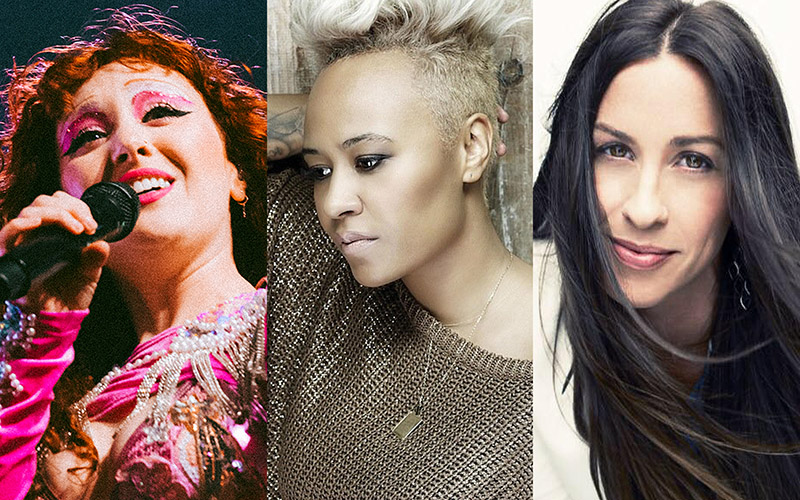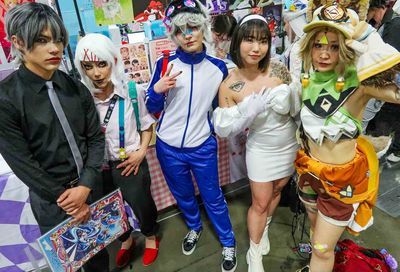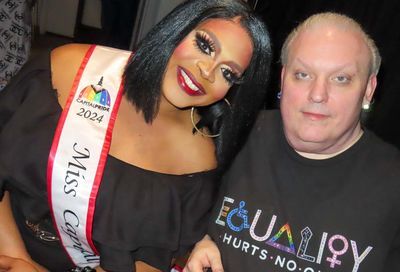Country Siren
Singer Beverley Mahood headlines the first ever concert for Atlantic States Gay Rodeo Association
What is it about Canada that produces such amazing country artists? Maybe it’s the wide open spaces. Or maybe it’s just the cleaner, crisper air. Or maybe it’s because Canadians love to tell stories. And what better musical storytelling format than a slow country song?
Beverley Mahood is the latest rage to emerge from our northernmost neighbor. With several awards already under her belt, a new solo album — Moody Blue — on the way in October, and a tasty side-dish career as part of an all-girl country trio called Lace, Mahood is hardly a new star. But she’s certainly a rising one.
“I’ve been in this business for so long that I feel like I’m old,” says the 26-year-old blonde, who is straight but for a country artist, incredibly open-minded. “I’m prepared to break down some walls and maybe rub people the wrong way. I’m prepared to have people accept me or not.”
 |
This Sunday, the acceptance will be most likely in an abundance of cheers as she headlines the first-ever Atlantic Stampede concert, closing out a weekend of dusty, back-busting encounters with bulls, line-dancing gay cowboys and lesbian cowgirls, and a sense of general merriment with an Old West pink-tinged flair.
“Be prepared to have a great time,” she says of her Sunday night appearance. “Have a few drinks before you come in because we are going to have fun. Because we do one high energy show.”
METRO WEEKLY: What is it that made you decide to pursue a career in music?
BEVERLEY MAHOOD: Ever since I was a child I’ve always loved being on a stage — I remember from the age of three just wanting people to look at me, so I’d stand up on top of my parents’ coffee table and sing and dance. On stage is where I feel most at home and the most comfortable. It’s just something I’ve always loved doing.
Music is a chance for me to write and share my feelings within my song, things that I believe in, things I go through every day. And I find that easier to do in a song rather than to sit down and explain to somebody in a story. So I guess I’ve had the opportunity to have music in my life to express how I feel about myself and the things in life. It’s like I was meant to do it. I get to live out my dreams every day.
MW: You started when you were pretty young — you met your current producer when you were twelve.
BEVERLEY: I did, so I’ve been in this business a long time. Kids used to go camp when they were kids. I spent my summer months at a recording studio recording jingles.
MW: Had you been writings songs as well as a teenager?
BEVERLEY: My producer introduced me to my current manager when I was nineteen. And they said, “We’re not going to do a record with you until you write at least one song.” So that was the challenge. One of the first songs I wrote was called “Girl Out of the Ordinary.” It was the neatest thing to express yourself in a song about what you’ve grown up through, feeling like “Maybe I’m no different.”
MW: Did you feel different from everybody else back then?
BEVERLEY: People looked at me as kind of weird. I never fit in at school. I always was the different child. My parents always moved around, they could never really settle down, so I didn’t have many friends. Until I wrote “Girl Out of the Ordinary,” I didn’t realize how many other people were just like me. Everybody in life goes through things that sometimes they don’t talk about until somebody else talks about it. And then they’re able to say, “That’s me.”
MW: What types of things, for example?
BEVERLEY: Never fitting in. Always being the new kid on the block. Going through high school and public school with kids just doing cruel things. Kids are not kind. Kids can be cruel. They used to put tacks in my shoes, throw my gym clothes into the toilet, put my hair — I used to have really long hair down to my bum — between the two backs of the desks so I’d get up and my hair would rip out. Now those same people come up to me and say, “We were kind of mean to you as a kid, but wow, look at you now!”
 |
MW: What was it about country music in particular that attracted you?
BEVERLEY: When I started writing, that’s where my music tended to fit because country music is in a lot of ways storytelling. Sometimes a pop song is like, “Yeah, love you baby, love you baby. Yeah, yeah.” But country music is like opening up a book for three and a half minutes and finding out a story.
MW: Your concert closes this weekend’s ASGRA rodeo. There are some country artists who, I imagine, would be a little hesitant to be attached to a gay rodeo.
BEVERLEY: Then you know what? You don’t want that artist. There’s a lot of people that I know of in the country music industry who are gay. They don’t say it because it’s not the proper thing to do, but they are gay and I can’t wait for the day that they come out.
Me, I accept people at face value. As long as they’re happy and they’re not hurting anybody, who cares [whether or not they’re gay]? [When I played the gay rodeo in Calgary], the interaction with the audience was unbelievable. We had a blast.
And I’m looking forward to [ASGRA]. I know that they’re audiences that will listen. My best friend is gay and he’s the guy that I will play songs for and say, “Okay, I have twenty songs because I have over-recorded for my record. I’m gonna give you a week and then you’re gonna come back and tell me which ones you like.”
MW: It’s kind of like queer ears for the straight girl. Do you remember the first time a gay friend came out to you and how you responded?
BEVERLEY: One of my best friends did come out to me and say “I think I have gay tendencies.” She was very, very nervous abut it, but it didn’t shock me at all and I supported her. I said, “You have to be happy in life, life is too short for you not to be able to be who you want to be as a person or who you want to be with.”
MW: How old were you when that happened?
BEVERLEY: Seventeen. I guess I sound enlightened, but the thing is that nowadays [straight] couples can’t stay together. So if you find something that works, make it work. And as long as you’re happy and you’re not hurting anybody, do it.
MW: No religious conflicts?
BEVERLEY: Not for me. Yes, I believe in God, but do I go out and promote it every day? No. I feel like you must go with how you feel in your heart and your gut.
MW: Canada recently made history in North America for legalizing gay marriage.
BEVERLEY: I thought that was great. The first thing I said to my gay friend Sergio was, “okay, so when are you getting married?” [Laughs.] As a society Canada tends to accept things more. And if we’re on the leading edge of this, that’s great.
MW: What’s the best thing that music has brought to your life?
BEVERLEY: That’s wrapped up in one word: acceptance. As a person with her own feelings and emotions, who has gone through life and felt like “Where do I fit in?” I find that it’s important that people like you. It’s important that people see your train that’s moving and want to get on board.
Beverley Mahood will perform at the Hyatt Regency, 400 New Jersey Avenue, Sunday, September 7, at 9 p.m. The concert is open to the public. Tickets are $15. For more information on ASGRA’s Atlantic Stampede 2003 events, see page 35.
Support Metro Weekly’s Journalism
These are challenging times for news organizations. And yet it’s crucial we stay active and provide vital resources and information to both our local readers and the world. So won’t you please take a moment and consider supporting Metro Weekly with a membership? For as little as $5 a month, you can help ensure Metro Weekly magazine and MetroWeekly.com remain free, viable resources as we provide the best, most diverse, culturally-resonant LGBTQ coverage in both the D.C. region and around the world. Memberships come with exclusive perks and discounts, your own personal digital delivery of each week’s magazine (and an archive), access to our Member's Lounge when it launches this fall, and exclusive members-only items like Metro Weekly Membership Mugs and Tote Bags! Check out all our membership levels here and please join us today!




